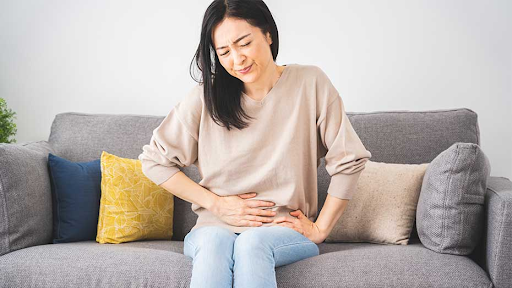A stomach infection, often caused by bacteria, viruses, or parasites, can lead to discomfort, pain, and various digestive issues. Whether it’s a common stomach bug or a more severe infection, understanding how to effectively manage and get rid of it is crucial for restoring your digestive health. In this comprehensive guide, we will explore the causes of stomach infections, common symptoms, and most importantly, practical strategies to alleviate symptoms and promote a speedy recovery.
Causes of Stomach Infections:
Stomach infections can be caused by various pathogens, with the most common culprits being bacteria, viruses, and parasites. Contaminated food and water are primary sources of infection, and poor hygiene practices can contribute to the spread of these pathogens. Bacterial infections are often attributed to strains such as Escherichia coli (E. coli), Salmonella, and Campylobacter. Viral infections can be caused by norovirus or rotavirus, while parasites like Giardia and Cryptosporidium may also lead to stomach infections.
Symptoms of Stomach Infections:
Stomach infections manifest with a range of symptoms that can significantly impact daily life. Common signs include:
Diarrhea: Frequent, loose, or watery stools are a hallmark of a stomach infection. Dehydration can be a concern with prolonged diarrhea and fast recovery using this medication nitazoxanide 500 mg.
Nausea and Vomiting: Persistent feelings of nausea often accompany stomach infections, and vomiting may occur, further contributing to dehydration and electrolyte imbalance.
Abdominal Pain and Cramping: Sharp or cramp-like pains in the abdominal region are common, making daily activities uncomfortable.
Fever: Infections often trigger an immune response, leading to an elevated body temperature.
Loss of Appetite: Due to nausea and digestive discomfort, individuals with stomach infections may experience a loss of appetite.
Fatigue: The body’s energy resources are diverted to fight the infection, leading to fatigue and weakness.
Now, let’s delve into practical steps to manage and overcome a stomach infection:
Stay Hydrated:
Dehydration is a significant concern during stomach infections, especially with persistent diarrhea and vomiting.
Drink clear fluids, such as water, electrolyte solutions, and herbal teas, in small sips throughout the day to replenish lost fluids and electrolytes.
Avoid caffeinated and alcoholic beverages, as they can contribute to dehydration.
Follow the BRAT Diet:
The BRAT diet consists of bananas, rice, applesauce, and toast, which are easy-to-digest foods that can help soothe the stomach nitazoxanide 200 mg. Gradually reintroduce other bland and easily digestible foods as symptoms improve.
Probiotics for Gut Health:
Probiotics, available in supplement form or in fermented foods like yogurt, kefir, and sauerkraut, can aid in restoring the balance of beneficial bacteria in the gut.
Probiotics may help reduce the severity and duration of symptoms.
Rest and Allow Your Body to Heal:
Adequate rest is crucial for the body to focus its energy on fighting the infection and recovering.
Avoid strenuous activities and prioritize sleep to support the healing process.
Over-the-Counter Medications:
Antidiarrheal medications, such as loperamide, can help control diarrhea. However, it’s important to use these under the guidance of a healthcare professional, as they may not be suitable for all cases.
Pain relievers like acetaminophen can help alleviate fever and abdominal pain.
Seek Medical Attention if Necessary:
If symptoms persist or worsen, it’s essential to consult a healthcare professional for proper diagnosis and treatment.
Severe cases may require prescription medications, especially if a bacterial infection is identified.
Practice Good Hygiene:
To prevent the spread of infection and protect others, practice good hygiene by washing hands thoroughly and frequently.
Avoid preparing food for others while you are still symptomatic to prevent the transmission of the infection.
Monitor and Manage Symptoms:
Keep track of your symptoms, including the frequency and consistency of bowel movements, as this information can be helpful for healthcare professionals.
Manage symptoms proactively, adjusting your diet and activities based on how your body responds.
Gradual Reintroduction of Foods:
As symptoms improve, slowly reintroduce a normal diet, starting with easily digestible foods and progressing to a well-balanced and varied diet.
Pay attention to how your body reacts to different foods and make adjustments accordingly.
Build a Strong Immune System:
Adopting a healthy lifestyle that includes regular exercise, a balanced diet, and adequate sleep can contribute to overall immune system strength.
Consider incorporating immune-boosting foods and supplements, such as vitamin C and zinc.
Conclusion:
Managing and overcoming a stomach infection involves a combination of supportive measures, dietary adjustments, and, in some cases, medical intervention. By staying hydrated, following a gentle diet, and prioritizing rest, individuals can often alleviate symptoms and promote a faster recovery. However, it’s crucial to seek medical attention if symptoms persist or worsen, as some infections may require specific treatments. Practicing good hygiene and adopting a healthy lifestyle can also play a crucial role in preventing future stomach infections. Ultimately, understanding your body’s needs and responding appropriately is key to managing and overcoming stomach infections effectively.



